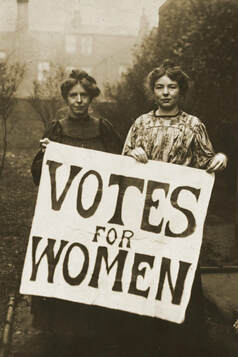One of our main drivers on Remembering Resistance is to inspire and empower women to campaign for change themselves, drawing on the last 100 years of amazing women’s activism here in the North of England.
So what can you do to make a change and make the world a better place for women, and society as a whole?
So what can you do to make a change and make the world a better place for women, and society as a whole?
Find out the gender pay gap where you work @ gender-pay-gap.service.gov.uk

The gender pay gap is an equality measure that shows the difference in average earnings between women and men. Across the UK, men earned 17.9% more than women in April 2018, although some industries and organisations had a gender pay gap of over 70%.
Why is this? The reasons are complex and overlapping, including:-
Find out what the gender pay gap is where you work. Start to ask questions about why that might be, and what your organisation can do about it!
Why is this? The reasons are complex and overlapping, including:-
- Women are still more likely to work in lower-paid and lower-skilled jobs, often due to being carers for young children.
- Discrimination especially against women who return to work after having a family.
- Men also tend to take up the majority of the most senior roles at a company, which are the highest paid.
Find out what the gender pay gap is where you work. Start to ask questions about why that might be, and what your organisation can do about it!
Check out your MP's voting record on gender issues @ www.theyworkforyou.com

Remembering Resistance was inspired by the centenary of the Representation of the People Act of 1918 when some women and all men got the vote. Using your vote is important for many reasons, namely it is the main way you can decide how the country is run. Looking at the way your MP has voted before means you can decide if they represent your views, and this may change how you vote in the future!
You can write to your MP for any reason, including asking them to support a campaign that you feel strongly about. You can find more details here.
See something, say something! Challenge stereotypical media coverage @ www.asa.org
|
A report published by the Advertising Standards Authority in 2017 stated “harmful stereotypes can restrict the choices, aspirations and opportunities of children, young people and adults. These stereotypes can be reinforced by some advertising, which plays a part in unequal gender outcomes, with costs for individuals, the economy and society” (You can see the full report here) If you see something which you deem to be offensive or stereotypical, you can complain to ASA on their website. Don’t let harmful stereotypes go unchallenged! |
Volunteer or donate to a charity that helps women or women's rights
As well as many international women’s charities, there are lots of grassroots, local charities which are fighting, advocating and campaigning on behalf of women. However, research in 2013 found that women's rights organisations — despite being a critical resource for women in crisis — are desperately underfunded. You can find local charities both to donate to or, in many cases, to volunteer with.
Whether helping victims of domestic abuse, protecting those whose human rights have been violated, or working to narrow gender gaps in fields like sport, technology and business, the women's charities making an impact in the UK today remind us that while women have come so far, there is always more to fight for, barriers to break down, stereotypes to overturn and lives to be helped. Get involved with a local charity and do your part to contribute!
Whether helping victims of domestic abuse, protecting those whose human rights have been violated, or working to narrow gender gaps in fields like sport, technology and business, the women's charities making an impact in the UK today remind us that while women have come so far, there is always more to fight for, barriers to break down, stereotypes to overturn and lives to be helped. Get involved with a local charity and do your part to contribute!
Believe that a gender equal world is possible … and settle for nothing less
For more information on any of the material above, you can look at the following websites:-
https://www.bbc.co.uk/news/business-42918951
http://www.equalpayportal.co.uk/gender-pay-gap/
https://www.makers.com/blog/womens-charities-making-impact-britain
https://www.bbc.co.uk/news/business-42918951
http://www.equalpayportal.co.uk/gender-pay-gap/
https://www.makers.com/blog/womens-charities-making-impact-britain


